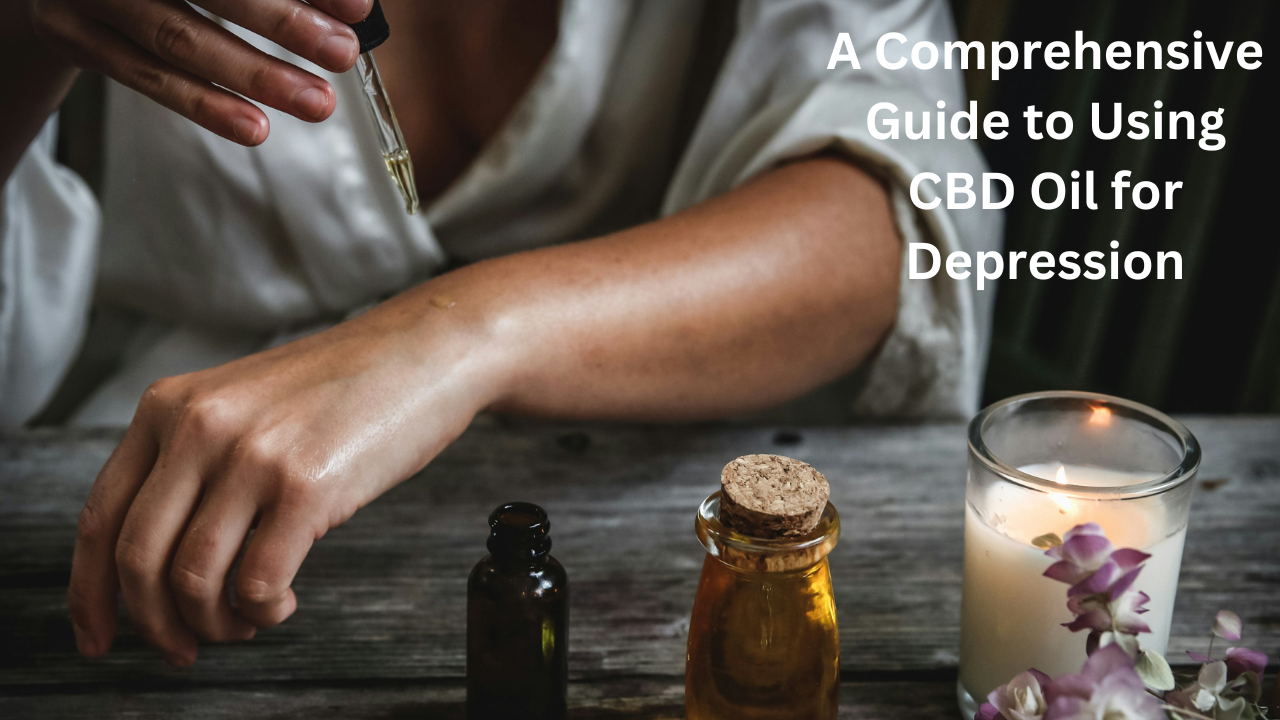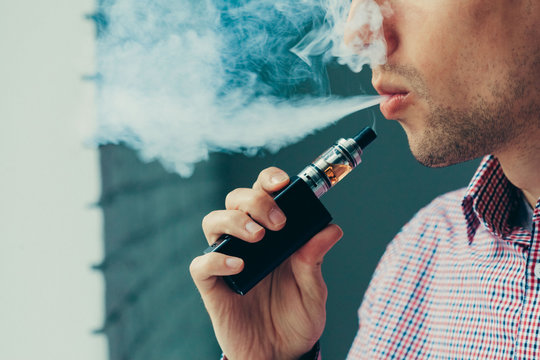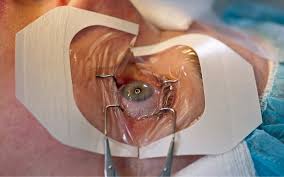Depression is not a fleeting sadness or a figment of the imagination; it is a serious and widespread mental health condition, an illness just like viral, Covid or Dengue, that affects millions of people across all ages. It demands a compassionate intervention and urgent treatment, that too without side-effects like that of antidepressants.
CBD oil offers a natural alternative to traditional antidepressants, potentially providing relief from depression symptoms without the side effects commonly associated with prescription medications.
Understanding Depression
Depression is more than just feeling sad, it is a silent epidemic. A complex mental health disorder known by persistent feelings of sadness, hopelessness, and loss of interest in daily activities, it can trigger insomnia, mood swings, change in appetite, increased fatigue, guilt, low self-esteem and even recurring suicidal tendencies.
According to the World Health Organization, over 280 million people globally suffer from depression, making it one of the leading causes of disability worldwide. In India, the situation is equally concerning. The National Mental Health Survey 2015-16 reported that 5.25% of the Indian adult population suffers from depression, affecting over 56 million people.
What is CBD Oil?
CBD (Cannabidiol) oil is a natural compound extracted from the cannabis plant. Unlike its cousin THC (tetrahydrocannabinol), CBD doesn’t produce psychoactive effects or a “high.” Instead, it’s known for its potential therapeutic benefits, including possible mood-regulating properties.
How CBD Oil Works for Depression?
CBD interacts with the body’s endocannabinoid system (ECS), which plays a crucial role in regulating mood, sleep, and stress responses – all of which are often disrupted in depression.
Research suggests that CBD may influence serotonin receptors in the brain, similar to how some antidepressants work. It may enhance the body’s own endocannabinoid levels, particularly anandamide – often called the “bliss molecule”.
A 2018 review published in the Journal of Chemical Neuroanatomy found that CBD demonstrated anti-stress effects, which may reduce depression related to stress. Another study in the Journal of Neuropharmacology (2016) showed that CBD exhibited fast and sustained antidepressant-like effects in animal models.
A 2019 case series published in “The Permanente Journal” found that anxiety levels dropped in 57 individuals (79.2%) within the first month and stayed lower throughout the period. Sleep ratings improved in 48 patients (66.7%) within the first month, but fluctuated thereafter. Cannabidiol has potential benefits for anxiety-related diseases, but additional controlled clinical trials are needed.
CBD may work through multiple other mechanisms:
- Serotonin Regulation: CBD appears to interact with serotonin receptors in the brain, particularly the 5-HT1A receptor. The activity of CBD at 5-HT1A receptors may drive its neuroprotective, antidepressive, and anxiolytic benefits, although the mechanism of action by which CBD decreases anxiety is still unclear.
- Neuroplasticity: CBD may promote neuroplasticity – the brain’s ability to form new neural connections.
- Stress Reduction: CBD has shown anxiolytic (anti-anxiety) properties, which may help alleviate stress-induced depression.
- Anti-inflammatory Effects: Chronic inflammation has been linked to depression.
Choosing the Right CBD Oil for Depression
When selecting CBD oil for depression, consider the following factors:
- Type of CBD: In India, full-spectrum CBD oil is available, which contains all cannabinoids found in the cannabis plant, potentially offering enhanced benefits due to the “entourage effect.”
- Quality and Testing: It’s crucial to buy from trusted brands like Cannazo India that provide proper testing and quality assurance. Look for products with third-party lab reports confirming purity and potency. Get in touch with experienced doctors via https://cannazoindia.com/doctor-consultation/
- Consultation and Dosing: Always consult with a healthcare professional before starting CBD, especially if you’re on other medications. They can guide you on appropriate dosing and potential interactions.
- Legal Status: In India, CBD oil derived from hemp with less than 0.3% THC is legal for medicinal use, but regulations can vary by state. Always verify the current legal status in your area before purchasing or using CBD products.
Methods of Using CBD Oil
There are several ways to use CBD oil for depression:
- Sublingual Tinctures: Place drops under the tongue for quick absorption. Cannazo’s Vijaya Amrit is an example of a high-quality sublingual tincture available in India.
- Oral Capsules: Easy to dose and convenient for daily use.
- Topical Applications: While less common for depression, some find relief from associated physical symptoms.
- Vaping: Offers rapid effects but may carry respiratory risks.
Integrating CBD Oil into Your Depression Management Plan
While CBD oil shows promise, it should be part of a comprehensive depression management plan:
- Professional Help: Continue working with mental health professionals.
- Lifestyle Changes: Incorporate regular exercise, a balanced diet, and stress-reduction techniques.
- Mindfulness Practices: Meditation and yoga can complement CBD’s effects.
- Consistent Use: CBD may take time to show effects. Maintain a consistent regimen as advised by your healthcare provider.
- Monitor Progress: Keep a journal to track your mood and any changes you notice.
Conclusion
Depression knows no boundaries, affecting individuals regardless of age, gender, or background, and it is time we break the silence and stigma surrounding this debilitating condition.
CBD oil presents a promising complementary approach to managing depression. While research is still ongoing, many find relief in its potential mood-stabilizing properties. However, it’s crucial to approach CBD use responsibly, choosing high-quality products and working closely with healthcare professionals.
Sources:
- World Health Organization. (2021). Depression. https://www.who.int/news-room/fact-sheets/detail/depression
- Gururajan, A., & Malone, D. T. (2016). Does cannabidiol have a role in the treatment of schizophrenia? Schizophrenia Research, 176(2-3), 281-290.
- de Mello Schier, A. R., de Oliveira Ribeiro, N. P., Coutinho, D. S., Machado, S., Arias-Carrión, O., Crippa, J. A., … & Silva, A. C. (2014). Antidepressant-like and anxiolytic-like effects of cannabidiol: a chemical compound of Cannabis sativa. CNS & Neurological Disorders-Drug Targets (Formerly Current Drug Targets-CNS & Neurological Disorders), 13(6), 953-960.
- Blessing, E. M., Steenkamp, M. M., Manzanares, J., & Marmar, C. R. (2015). Cannabidiol as a potential treatment for anxiety disorders. Neurotherapeutics, 12(4), 825-836.
- Crippa, J. A., Guimarães, F. S., Campos, A. C., & Zuardi, A. W. (2018). Translational investigation of the therapeutic potential of cannabidiol (CBD): toward a new age. Frontiers in immunology, 9, 2009.
- Shannon, S., Lewis, N., Lee, H., & Hughes, S. (2019). Cannabidiol in Anxiety and Sleep: A Large Case Series. The Permanente Journal, 23, 18-041. https://doi.org/10.7812/TPP/18-041

















